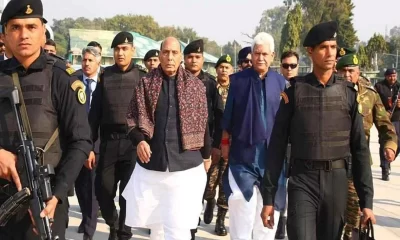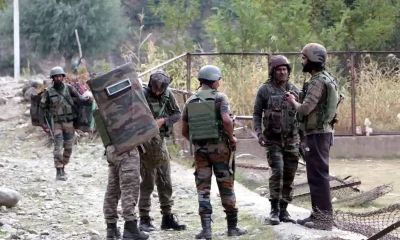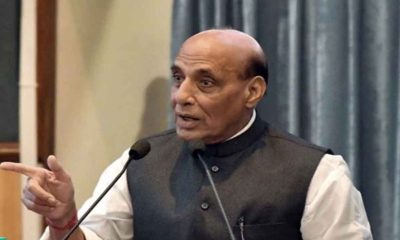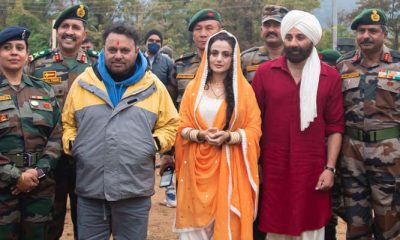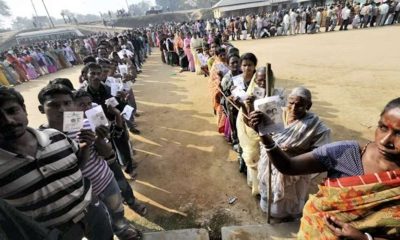India News
Soldiers may have to buy their uniforms as Army needs limited budget to buy ammunition
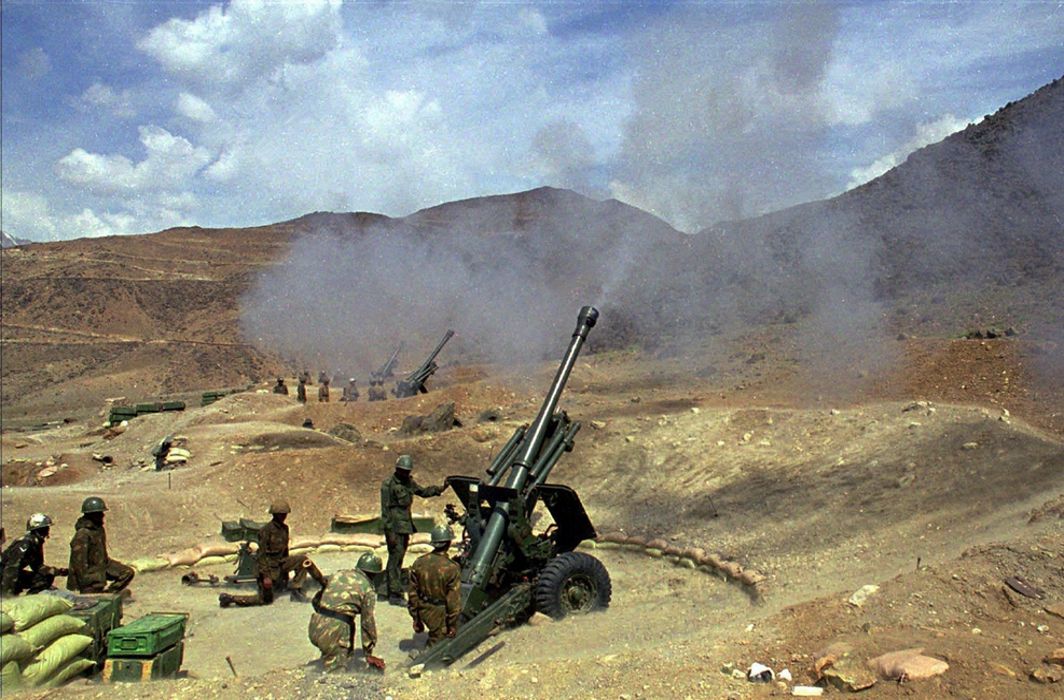
Claims of a booming, fastest growing economy have come up against yet another hard reality: the government does not have enough money to spare for critical needs of defence forces.
According to a report in the Economic Times (ET), the Indian Army has decided to drastically cut down its supplies from state-owned ordnance factories from 94% to 50% and spend the money saved to replenish the depleting stocks of critical ammunition and spares for a short intense war which the public sector unit has failed to provide.
The reason cited was that the Centre has not provided additional funds for these. The cut in orders for procurements from Ordnance factories is likely to hit supplies of clothing (combat dress, berets, belts, shoes) to soldiers who will have to spend their own money to buy these items from civilian markets, said the ET report. Even spares for certain vehicles will suffer, said the report.
The Army is working on three major projects to build this stock and requires funds worth thousands of crores, but since the Centre has not been forthcoming with the money, the Army has been forced to dig into its own minimal budget to cater to these requirements, said the ET report quoting unnamed officials.
Of the three projects, only one has begun and that payment for the emergency procurement for this project has been distributed over the years due to shortage of funds, the report said.
Another official explained that about Rs 5,000 crore has been spent on emergency procurement and another Rs 6,739.83 crore needs to be paid.
This project with the 10(I) order now costs about Rs 21,739.83 crore. The 10 (I) is ammunition and spares needed for 10 days of intense war.
For remaining payment of the two projects, the Army is trying to figure out how to fund them as the Centre has asked it to spend from its own budget.
The official said in March, the Army had made an initial cut in supplies from ordnance factories. “In March, the ordnance factories’ allocation for supplying items such as clothing, spares and certain ammunition was brought down to about Rs 11,000 crore,” ET quoted the official as saying.
Now, said the official, the army has decided to bring down purchases bought from ordnance factories from 94% of their products to 50%, so “from Rs 11,000 crore given to the ordnance factories it was brought down to around Rs 8,000 crore”. The officials added that the deficiency in ammunition and spares is because the ordnance factories have not been able to completely meet the requirements.
He added that the move would save about Rs 3,500 crore every year. “We will add another Rs 4,000 crore, bringing the total amount to Rs 7,000-8,000 crore a year. For three years, we should have close to Rs 24,000 crore, which will be used for the emergency procurement and the order for 10 (I),” said the official.
Providing a bit of background, the ET report said that following the 2016 Uri terrorist attack, the Army found that 46 types of critical ammunition, including for the artillery, tanks such as Armour Piercing Fin-Stabilised Discarding Sabot, anti-material, and 10 types of spares for vehicles and equipment were below 10 (I).
Recently ordnance factories had protested against the move. A few days ago, a top Army officer had met a senior defence ministry official and convinced him of the reason behind the move. The move, however, could create a problem for the government, as ordnance factories and several MSMEs could go into litigation as they have several past orders from the Army.
The Centre has also identified eight types of ammunition for manufacture by Indian private firms for Rs 1,700 crore per year for the next 10 years. This ammunition includes 30mm used by the infantry, 120mm extended range, 23mm and 40mm grenades.
The Army is also procuring Pinaka rockets over 10 years, which is worth Rs 1000 crore a year. “With these steps we should have 90% per of ammunition for 10 (I) by June 2019. Even at this juncture we are relatively fine, because all types of ammunition will not be used during war. But the government has to provide budgetary support. So far it has not and the Army has been forced to use its own budget at the cost of modernisation and maintenance,” said an official.
Education
Farmer’s son Nilkrishna Gajare Nirmalkumar from Maharashtra scores 100 NTA score in IIT-JEE Mains 2024
Nilkrishna Gajare’s father is a farmer and had to discontinue his own education after Class 12 as he faced financial difficulties. Gajare faced financial challenges growing up. However, his unwavering dedication and strategic approach to preparation set him apart from the crowd.
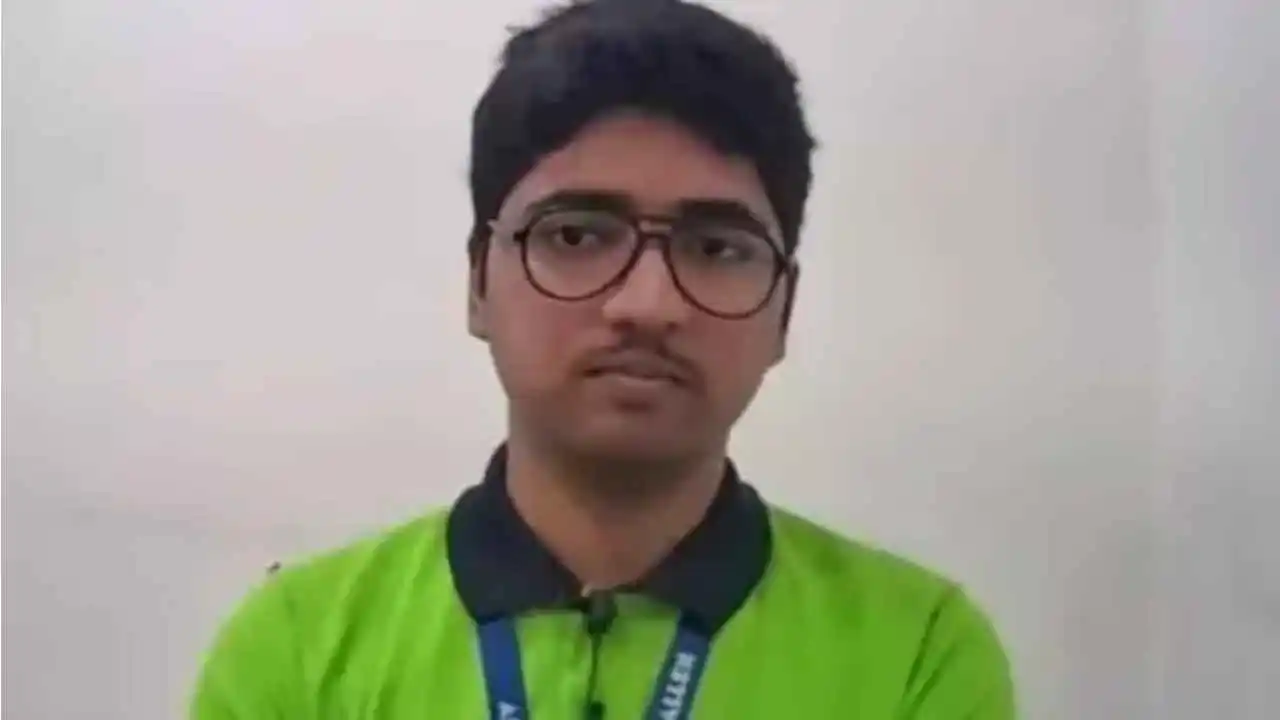
Nilkrishna Gajare, who hails from Maharashtra’s Washim, achieved an extraordinary feat by securing a perfect score of 100 in the JEE Main 2024 examination. His journey from humble beginnings to the pinnacle of success is a source of inspiration for many people.
Nilkrishna Gajare’s father is a farmer and had to discontinue his own education after Class 12 as he faced financial difficulties. Gajare faced financial challenges growing up. However, his unwavering dedication and strategic approach to preparation set him apart from the crowd, which resulted in his remarkable achievement of emerging as topper of one of India’s toughest Engineering entrance exams.
Nilkrishna Gajare had a strategic plan that helped him succeed in IIT-JEE 2024. According to Nilkrishna persistence is important and one should never stop trying until they understand a topic. He said being curious and asking questions are important traits of a good student. He said one should not be ashamed of asking questions.
Nilkrishna spent around 10-15 hours every day studying on his own for the JEE Main exam. He mentioned that he used his class notes for Physics and Physical Chemistry. For organic chemistry and inorganic chemistry, he relied on both notes and practice questions.
As for Mathematics, he believed that practicing regularly was the most important thing for him. Other interests of Nilkrishna include archery. He has participated at both state and national levels, and he finds joy in the sport. He said archery helps him understand the importance of focusing his attention on his goals. Nilkrishna likes watching movies and said they are a great source of enjoyment and relaxation.
He likes to watch a movie after exams and occasionally treats himself to one each week too. Gajare aims to keep up the pace for the JEE-Advanced exam and hopes to get into the IITs. He said he wants to secure admission in IIT-Bombay in the computer science branch.
2024 Lok Sabha Elections
Lok Sabha elections: Samajwadi Party chief Akhilesh Yadav files nomination from Kannauj
The Samajwadi Party has announced Akhilesh Yadav as its official candidate for the Kannauj Lok Sabha seat today
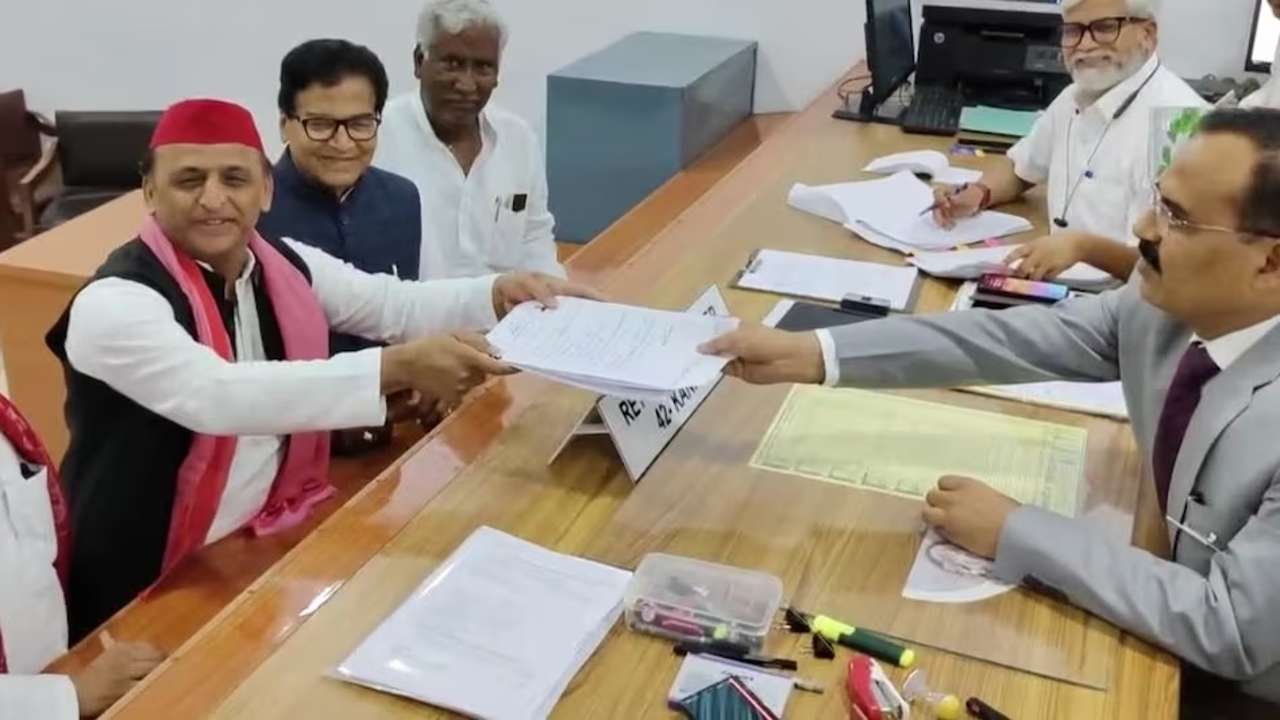
Samajwadi Party (SP) chief Akhilesh Yadav, submitted his nomination for the Kannauj Lok Sabha constituency ahead of tomorrow’s second round of voting. In front of Ram Gopal Yadav and other party leaders, the chief of the SP, who had previously contested the seat in 2000, 2004 and 2009, submitted the nomination.
Speaking with media, Ram Gopal Yadav said that SP would win the seat by a huge margin. The BJP candidate might lose his deposit in the seat, he said.
The Samajwadi Party has completely reversed its earlier plan to field former Mainpuri MP Tej Pratap Singh Yadav as their candidate, which is a significant political development.
Earlier, Akhilesh Yadav told reporters, people will find out when the nomination takes place, in reference to the speculations that he will contest for the seat. The historic victory of Kannauj is the subject of inquiry.
The former chief minister continued, the people have decided that the India bloc is coming as the future and the BJP will be history in this election.
Notably, elections for the Kannauj seat are scheduled for May 13, which would intensify the political drama that is now playing out in Uttar Pradesh. Previously regarded as the Samajwadi Party’s stronghold, the seat was lost by the party in the 2019 election when Subrat Pathak of the BJP won with a resounding victory.
The candidates competing for the following Uttar Pradesh seats will find out their destiny in the second round of voting, which is scheduled for tomorrow, Amroha, Meerut, Mathura, Baghpat, Aligarh, Ghaziabad, Gautam Buddh Nagar, and Bulandshahar.
Notably, two Bollywood celebrities running as BJP candidates in the second round are Hema Malini from Mathura and Arun Govil from Meerut. There are 91 contestants from UP competing in the second phase.
The seats in Gautam Buddha Nagar and Mathura are up for grabs, with a maximum of 15 applicants per seat. In Bulandshahr, six candidates are vying for the presidency. There are twelve contenders running in Amroha, eight in Meerut, seven in Baghpat, and fourteen in Ghaziabad and Aligarh.
1,67,77,198 votes will decide these candidates’ fates.
2024 Lok Sabha Elections
Bihar: Election Commission extends voting timings for 4 Lok Sabha seats due to heatwave
The voting period has been extended by two hours for a total of 299 polling stations
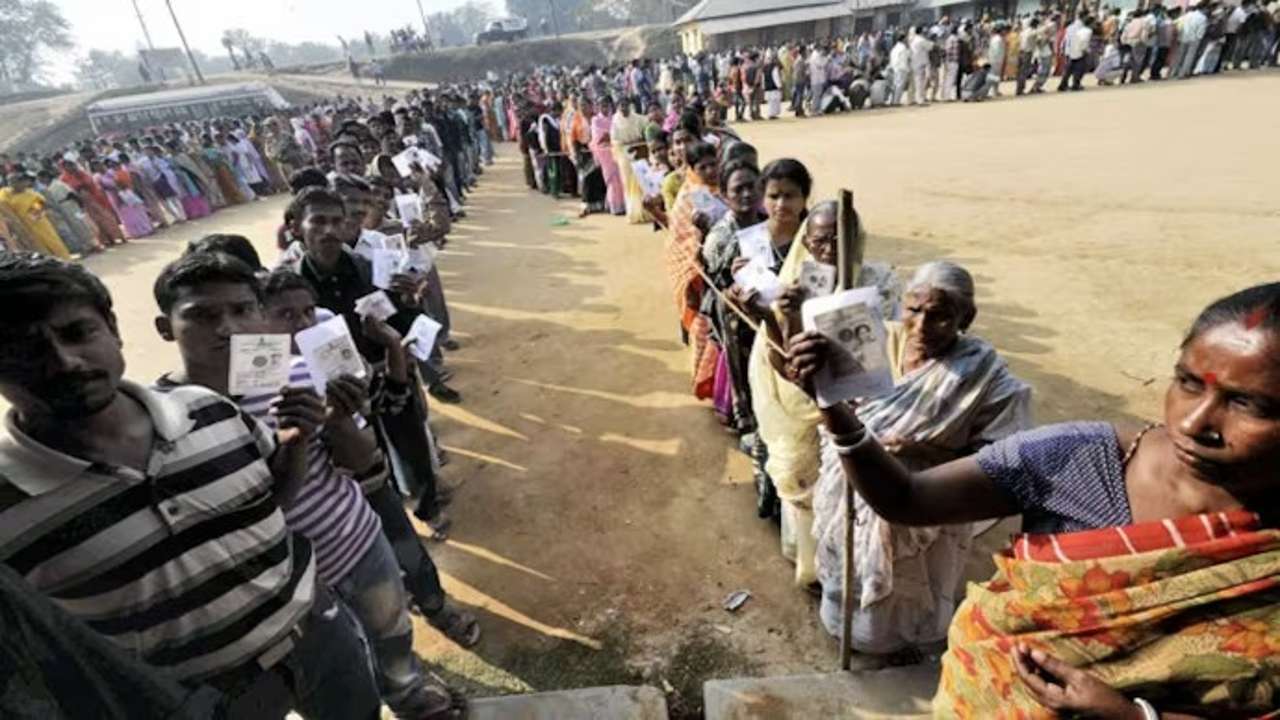
In accordance to the rising temperatures in Bihar, the Election Commission of India (ECI) has extended the voting hours for the upcoming three phases of the parliamentary polls at 1,700 polling places spread across four parliamentary seats, Banka, Madhepura, Khagaria, and Munger. The extension of the voting hours was announced by poll officials on Wednesday.
Polling generally takes place from 7 a.m. to 6 p.m. in most parts of the country, however, in certain isolated locations and in constituencies impacted by left-wing extremism, polls close two hours early to allow polling parties to move around easily.
The ECI gazette notification said the dates for the parliamentary constituencies of Banka (Katoria and Belhar assembly segments), which will hold elections on April 26, Madhepura (Mahishi assembly segment), Khagaria (Simri Bakhtiyarpur, Alauli, and Beldaur assembly segments), where voting will take place on May 7, and Munger (Suryagarha assembly segment), which will hold final phase elections on May 13, have been extended.
The voting period has been extended by two hours for a total of 299 polling stations in Simri Bakhtiarpur, 191 polling stations in Belhar AC of Banka, 172 polling stations in Katoria Assembly Constituency (AC) and 191 polling stations in Belhar AC of Banka, 207 booths in Mahishi AC of Madhepura seat, and 230 polling stations in Suryagarha AC of Munger.
In an effort to boost voter turnout, which fell to 49.26% in the first phase of polling on April 19 in Aurangabad, Gaya, Nawada, and Jamui from 53.47% in 2019 by 4.21%, the timing has also been extended.
Meanwhile, during the course of the next several days, temperatures in the southern states, namely Kerala and Karnataka, are predicted to rise by 2-3°C. In Southern Karnataka, where up to 14 constituencies are scheduled to vote in Phase 2, a heatwave warning has been issued. It is predicted to affect the districts of Tumkur, Davangere, Vijayapura, Yadgir, Koppal, Bagalkote, Kalaburgi, Raichur, Ballari, Chitradurga, Kolar, Chikkaballapura, Gadag, and Davangere.
The EC stated that a likely factor influencing voter turnout is the increase in temperature.
-
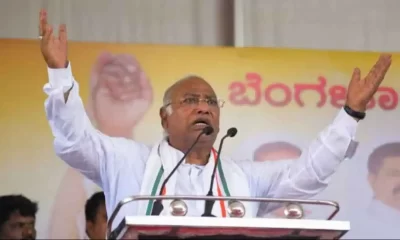
 2024 Lok Sabha Elections20 hours ago
2024 Lok Sabha Elections20 hours agoMallikarjun Kharge vows to continue politics till his last breath to defeat BJP
-
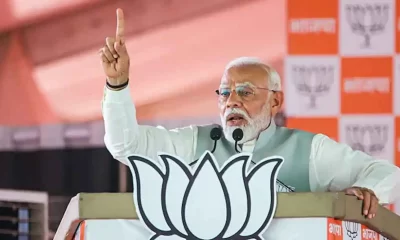
 2024 Lok Sabha Elections23 hours ago
2024 Lok Sabha Elections23 hours agoPM Narendra Modi slams Congress over Sam Pitroda’s inheritance tax remarks, accuses Congress of intending to impose higher taxes
-

 Entertainment22 hours ago
Entertainment22 hours agoMadhuri Dixit, Karisma Kapoor recreate Dil To Pagal Hai dance battle on Dance Deewane
-
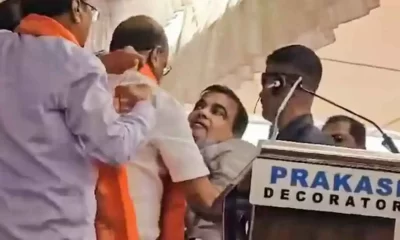
 2024 Lok Sabha Elections20 hours ago
2024 Lok Sabha Elections20 hours agoNitin Gadkari says he’s better now after collapsing at election rally in Maharashtra’s Yavatmal
-

 Entertainment2 hours ago
Entertainment2 hours agoBollywood stars Salman Khan, Alia Bhatt, Rekha, Sonakshi Sinha, Aditi Rao Hydari attend Sanjay Leela Bhansali’s Heeramandi premiere
-

 India News4 hours ago
India News4 hours agoTamannaah Bhatia summoned in illegal IPL streaming app case, to appear before cyber cell on April 29
-

 Education59 mins ago
Education59 mins agoFarmer’s son Nilkrishna Gajare Nirmalkumar from Maharashtra scores 100 NTA score in IIT-JEE Mains 2024
-
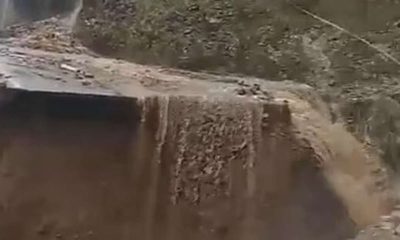
 India News3 hours ago
India News3 hours agoLandslide hits Arunachal Pradesh, highway linking Indo-China border affected

